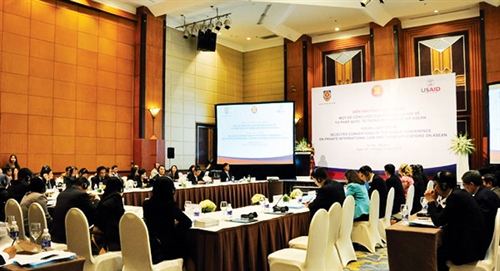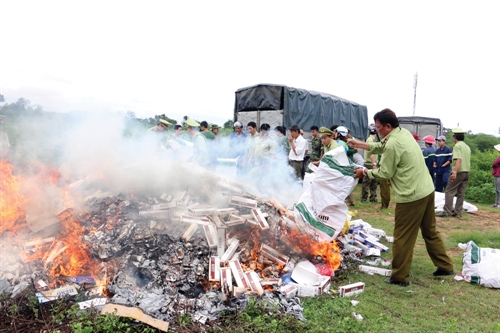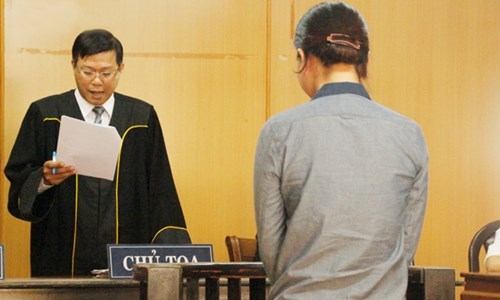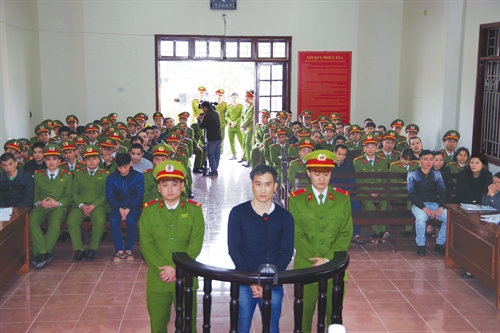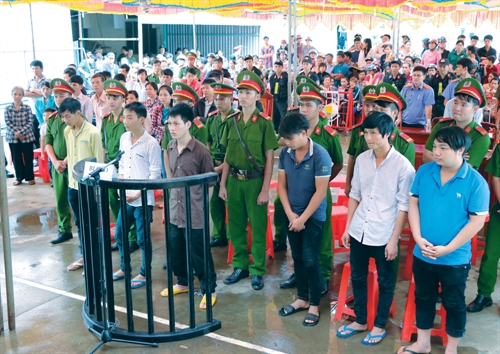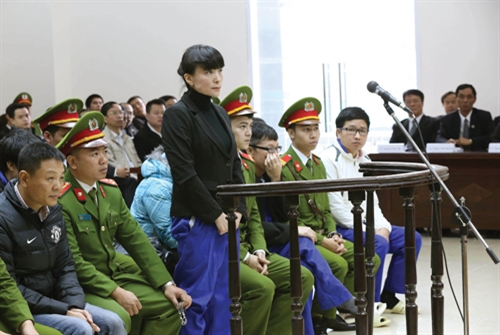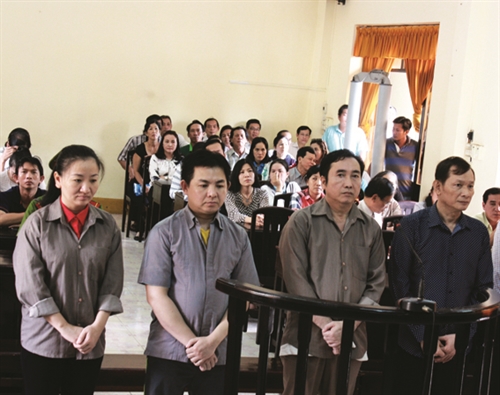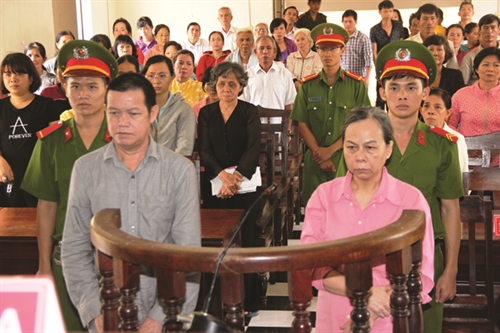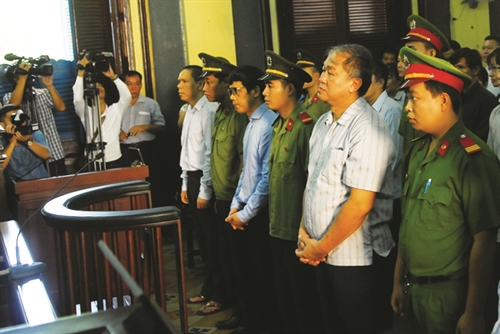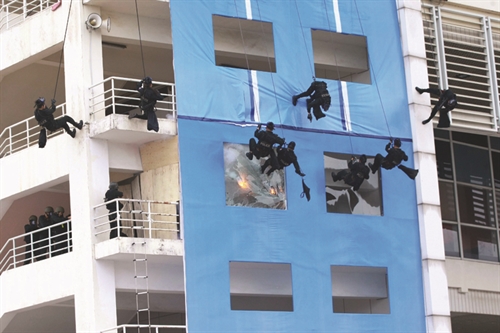Nguyen Cong Long
Justice Department, National Assembly Office
At its 3rd session wrapped up last month, the National Assembly passed a law making a raft of amendments to the 2015 Penal Code (the 2015 Code) with effect from early next year. More than 200 articles of the Code have been amended, one new article added and another removed. These amendments include not only corrections of technical errors but also many criminal justice policy changes. Below are the most prominent of them.
Narrower scope of penal liability of minors
The 2015 Code marks an important milestone in adjusting the criminal justice policy toward persons aged under 18 years, providing in Article 12.2 that persons aged between full 14 years and under 16 years shall only bear penal liability for 29 common crimes like crimes against human life, health, honor and dignity and property, and against public order and safety, and drug-related crimes[1].
For the three particular crimes of intentionally inflicting injury or causing harm to the health of other persons (Article 134), rape (Article 141), and kidnapping in order to appropriate property (Article 169), based on the level of danger of these criminal acts and the cognitive ability of offenders, the Code, however, stipulates that offenders shall bear penal liability even when their acts are less serious.
After many discussions and consultations, the National Assembly finally adopted a common view that it was necessary to consistently implement the criminal justice policy toward juvenile offenders already set forth in the 1985 and 1999 Penal Codes, that is, persons aged between full 14 years and under 16 years shall only bear penal liability for very serious crimes intentionally committed or particularly serious crimes. Therefore, revised Article 12.2 of the 2015 Code stipulates that persons of this age group may be examined for penal liability only for very serious crimes or particularly serious crimes prescribed in 28 articles[2]. Similar changes are also seen in Articles 91, 93, 94, 95 and 100 of the Code.
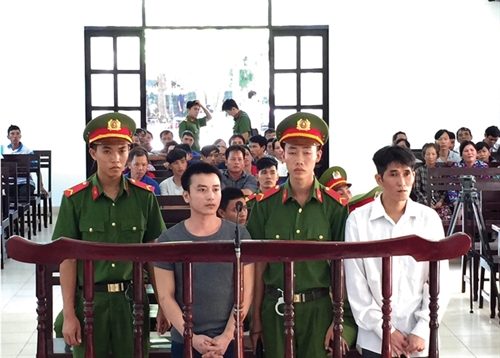 |
| Defendant Nguyen Ca Son (in white) and defendant Nguyen Ngoc Dan at the first-instance court hearing for their murder in Phan Rang-Thap Cham city, Ninh Thuan province__Photo: Cong Thu/VNA |
Defense counsels still held liable for not denouncing crimes
Article 19.3 of the 2015 Code provides that a defense counsel shall bear penal liability if he fails to denounce crimes infringing upon the national security or other particularly serious crimes specified in Article 389 of the Code.
The above provision triggered hot debates among lawyers and jurisprudents. Concerning this provision, the Vietnam Bar Federation put forward two options: remove Article 19.3 or examine penal liability of defense counsels only in case they fail to disclose information about particularly serious crimes of offenders whom they defend, including high treason (Article 108), carrying out activities aimed at overthrowing the people’s administration (Article 109), rebellion (Article 112), terrorism against the people’s administration (Article 113), and murder (Article 123), when they have explicit grounds to believe that such crime is carried out or being prepared and it is necessary to prevent their possible consequences.
Other opinions held that this provision was against lawyers’ professional ethics, contrary to the provision of Article 73 of the Criminal Procedure Code that defense counsels may not disclose information about cases and accused persons which/whom they know when providing defense, and unconformable to international practices.
The obligation of citizens to denounce crimes and their penal liability for failing to denounce crimes are not novel issues as they were touched upon in the previous Penal Codes[3]. Defense counsels, like other citizens, have such obligation according to the constitutional principle: “Every citizen has the obligation to obey the Constitution and law; to participate in safeguarding the national security and social order and safety.”[4] A close look at Article 19.3 of the 2015 Code reveals that it does narrow the scope of penal liability of defense counsels compared to that of other citizens.
The National Assembly Standing Committee gave three reasons why defense counsels could not be totally exempted from the obligation to denounce crimes. First, this provision aims to safeguard the national security, social order and safety and public interests. Second, this policy is consistent with Articles 5 and 25 of the Law on Lawyers which require lawyers to abide by the Constitution and law and be independent and honest and respect the objective truth, and not to disclose information about cases, matters or clients which/whom they may know while practicing their profession, unless otherwise prescribed by law. It is also conformable to the professional ethics and code of conduct of Vietnamese lawyers (Rule 1 says that lawyers must be loyal to their Fatherland and that with their professional activities, lawyers contribute to safeguarding justice and building a law-ruled state under the Constitution and law. Third, other countries like the US, Germany, Sweden, Canada, Spain, China, and Thailand, all have regulations permitting lawyers to disclose, in certain circumstances, information about their clients in order to protect the national and public interests and prevent consequences of crimes[5].
However, assimilating opinions of the public, National Assembly deputies, related agencies and organizations and the Vietnam Bar Federation, Article 19.3 of the 2015 Code has been revised toward further narrowing the scope of penal liability of defense counsels. The revision says that a defense counsel shall only bear penal liability for failure to denounce a crime infringing upon the national security or another particularly serious crime which is prepared, being carried out or has been committed by the person he defends, when he clearly knows about such crime while performing the defense.
Violating regulations on multi-level marketing - a new crime
It should be noted that, in order to ensure the strict handling of criminal acts according to their nature, Article 217a excludes the crimes prescribed in Article 174 (Appropriating property through swindling) and Article 290 (Using computer networks, telecommunications networks or electronic devices to appropriate property). This means in case a person takes advantage of multi-level marketing business to appropriate property through swindling, he will be penalized for the crime of appropriating property through swindling. If he uses computer networks, telecommunications networks or electronic devices in multi-level marketing activities, he will be handled for the crime of using computer networks, telecommunications networks or electronic devices to appropriate property. These two crimes carry much heavier penalties than that meted out for the new crime.
Article 292 of the 2015 Code removed
The crime of providing illegal services on computer or telecommunications networks, prescribed in Article 292 of the 2015 Code, is one of the 10 crimes related to information technology and telecommunications under Chapter XXI of the 2015 Code. The social relation infringed upon by this crime is public safety and order. However, from the view of the Government, the constituents of this crime do not clearly reflect its danger to the public safety and order but in essence represent only a “variant” of the crime of conducting business illegally, i.e., an economic crime. Given that the crime of conducting business illegally was already removed from the 2015 Code, the removal of Article 292 was necessary.
Some opinions, however, proposed retaining this crime with a narrower scope in order to help create a fair and healthy online business environment and enhance the state management of this field, particularly preventing acts of illegally organizing gold exchanges or illegally conducting online multi-level marketing.
After making careful consideration, the National Assembly has come to a final decision to remove this crime from the Code.
Commercial legal entities now liable for financing terrorism and money laundering
Under Article 76 of the 2015 Code, commercial legal entities shall only bear penal liability for 31 crimes against the economic management order and the environment. The crimes of financing terrorism (Article 300) and money laundering (Article 324) are prescribed in the Chapter on crimes against public safety and order and therefore fall beyond the scope of their penal liability.
As reported by the Ministry of Justice and State Bank of Vietnam, a number of international conventions to which Vietnam has acceded or is a member state, such as the 1988 UN Convention against Illicit Traffic in Narcotic Drugs and Psychotropic Substances, the 1999 International Convention for the Suppression of the Financing of Terrorism, the UN Convention against Transnational Organized Crimes, etc., require their member states to criminalize money laundering and terrorism financing acts of legal entities.
In 2018, Vietnam’s progress in the work of money laundering and terrorism financing prevention and control will be reviewed and assessed. If failing to fulfill its commitments to adding regulations on penal liability of legal entities for money laundering and terrorism financing, the country will be rated as “non-compliance” or even put back into the list of countries that lack an anti-money laundering and terrorism financing mechanism and may be placed under the surveillance of the Financial Action Task Force on Money Laundering (FATA) as in 2010[6].
In order to fulfill Vietnam’s commitments under the above international conventions and at the same time have more legal tools to prevent and combat money laundering and terrorism financing, the National Assembly has decided to add provisions on penal liability of commercial legal entities for the crimes of money laundering and terrorism financing. As a result, the total number of crimes for which commercial legal entities shall bear penal liability rises to 33[7].
Under Articles 300 and 324, the penalties to be imposed on commercial legal entities committing these crimes are very tough. A commercial legal entity that finances terrorism may face a fine of between VND 7 billion and 15 billion or be suspended from operation for six months to three years or for good, and may also be banned from conducting business or operating in certain fields or from raising capital for one year to three years. A commercial legal entity that commits money laundering crimes may face a fine of VND 1 billion up to 20 billion or have its operation suspended for one year to three years or for good, and may also be subject to other additional penalties.-
A commercial legal entity shall bear penal liability for the crimes prescribed in Articles 188, 189, 190, 191, 192, 193, 194, 195, 196, 200, 203, 209, 210, 211, 213, 216, 217, 225, 226, 227, 232, 234, 235, 237, 238, 239, 242, 243, 244, 245, 246, 300 and 324 of this Code
